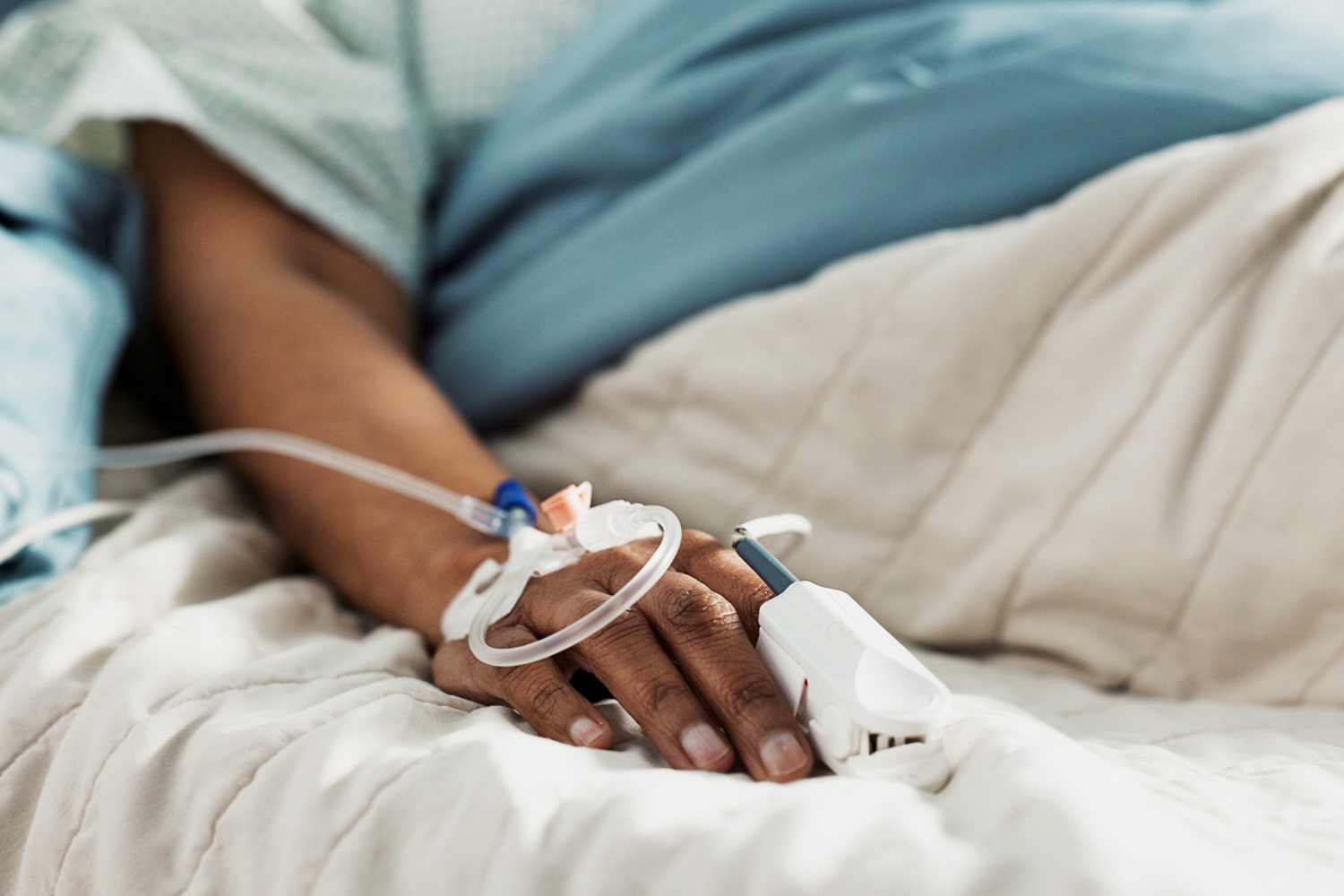
Challenges & Choices is an ongoing series where we tackle the most difficult questions in cancer care. From finances to end-of-life care, we will explore how you can be prepared with practical information, ways to find emotional support, and stories from people who have been there.
WHEN ONCOLOGISTS Deborah Doroshow and Fauzia Riaz met as fellows at Yale Cancer Center in 2019, they discovered they shared a professional concern. They had both observed cancer patients ill enough to require inpatient care who were being started on immune checkpoint inhibitors (ICIs), a newer form of cancer treatment that prompts the body’s immune system to target cancer cells.
Often, the motivation behind the treatment felt like a Hail Mary, Riaz says, with doctors or patients hoping the ICIs would buy more time and be better tolerated than other treatment methods, such as chemotherapy and radiation. But both Riaz and Doroshow wondered if that was true.
“I recall a few conversations where the two of us were wondering, ‘What really is the clinical benefit of doing this? Is this practice really helping people?’” Doroshow, a medical oncologist and an associate professor of medicine at the Icahn School of Medicine at Mt. Sinai in New York City, says.
In a study published Feb.12 in JCO Oncology Practice, Doroshow, Riaz and colleagues analyzed the data of more than 200 cancer patients at five different facilities who were admitted to a hospital and received ICI treatment for various cancers between 2012 and 2021.
Typically, cancer patients who receive inpatient treatment are hospitalized because they are dealing with a symptom or side effect that requires acute care. Not all such patients have advanced cancers, but many in the study did. Inpatient care, especially for solid tumors, is highly correlated with a poor prognosis, Doroshow and Riaz say. The results of their study convinced them that the vast majority of such patients were not benefiting from ICI treatment.
“Very few patients experienced their cancer shrinking … and some of them had very severe side effects,” Doroshow says. “We were not able to identify any features about the patients, including demographics, clinical features or type of cancer, that were associated with people having a higher likelihood of benefiting from these treatments.”
The data showed that median survival time after first ICI treatment was just 1.55 months, which the study noted is less time than it takes many of these treatments to begin producing a benefit. The potential downsides of treatment were substantial. Doroshow says that although some patients tolerate ICI treatment very well, others experience severe, sometimes life-threatening side effects that do not always abate when treatment stops. Also, many health insurance providers don’t cover ICI treatments given to inpatients, raising concerns about the financial costs to patients or providers.
But for Riaz, the most sobering finding was that about one-quarter of patients ended up dying in the hospital, while only 1 in 10 were transferred to hospice care.
“That’s a very small percentage of patients who ended up getting discharged to hospice when a majority of patients have advanced cancers,” says Riaz, a medical oncologist at Stanford Medicine in California.
Informing Conversations About Stopping Treatment
Annekathryn Goodman, a gynecologic oncologist and surgeon at Massachusetts General Hospital in Boston, knows treatment decisions for advanced cancers are often emotionally fraught. In 2022, Goodman and colleagues published a review of existing medical literature around the cessation of cancer treatment, seeking insights into decision making.
Although they focused on advanced-stage patients who received palliative chemotherapy after previously receiving at least two other lines of chemotherapy, Goodman says they reached conclusions similar to the newer study. Another round of chemotherapy treatments for such patients did not achieve tumor-reduction goals, the researchers concluded. And ultimately, the researchers saw a need for better and earlier communication between patients and providers about the prospects of treatment and palliative options.
Goodman says oncologists have been excited by the arrival of immunotherapy treatments over the past decade, and she’s not surprised many are optimistic that ICIs may help patients with advanced cancer. But she also isn’t surprised that Doroshow’s and Riaz’s study found a similar lack of successful outcomes as her earlier study of chemotherapy use.
“The question is, ‘Does it help?’” Goodman says. “And the answer is, you know, probably that it doesn’t help at that point. That’s not really where we’re going to get traction … when you get to that place where the patient is so sick.”
However, Riaz and Doroshow say some colleagues are not completely convinced by their results. In about 10% of cases the researchers reviewed, providers felt the patient’s cancer was indeed shrinking after receiving ICI treatment. When presenting their study at conferences, Riaz and Doroshow say the first thing doctors in attendance often ask is which patients did realize a benefit.
When this happens, they reiterate that they found no variable that predicted which patients benefited from treatment. But they say these interactions reinforce their own conclusions that providers may be too focused on trying to obtain a marginal benefit for patients with advanced cancer, instead of having earlier, informed conversations about treatment options, including active treatment cessation in favor of palliative or hospice care.
“I’ve used this study in my own practice to bolster conversations that I have with patients and families as a more objective guide,” Doroshow says. “When we’re dealing with these very, very challenging situations when people might be making the hardest decision of their lives, emotions come into it because we’re human. Concrete data can help guide those conversations.”
Are there challenging issues you’d like us to investigate? Would you like to share your story about difficult choices or challenges you’ve faced. Email us at editorial@cancertodaymag.org with “Challenges & Choices” in the subject line.
Cancer Today magazine is free to cancer patients, survivors and caregivers who live in the U.S. Subscribe here to receive four issues per year.





